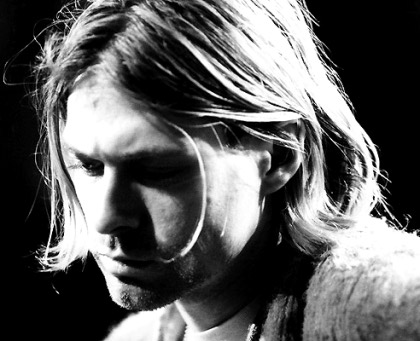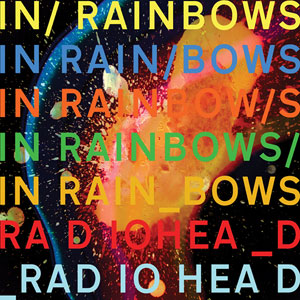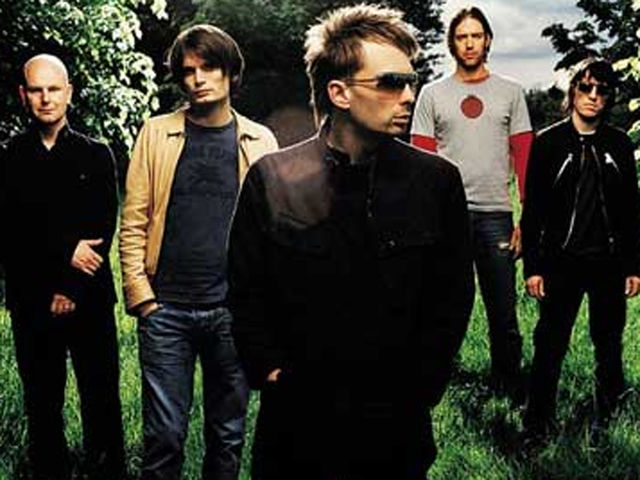On April 8, 1994, the musical world was brought to a standstill. As I arrived home from my last year of Junior High School, I was shocked to learn that Nirvana frontman, Kurt Cobain, had taken his own life. Now, I’m not going to sit here and tell you that I was the biggest Nirvana fan in the world. I wasn’t. In fact, over the years, I have become more intrigued with their legacy as “one of the greatest bands ever”, rather than an avid disciple of their musical creations.What strikes me now is that back in 1994, I had my whole life ahead of me. I was excited about the future and the possibilities it would eventually present.
As I viewed the CNN report of Cobain’s demise, my thoughts became grounded in the reality that no matter how successful one can become, personal demons still have the ability to manipulate and destroy. Life wasn’t like ‘Leave it to Beaver’.
In a sense, the world changed for me that day. I learned that success and money were merely mirages sent to distract us from our own inabilities as human beings. Cobain struggled with many issues such as drugs, depression, women, fame, and understanding of his place in this world*. He destroyed himself because he was unable to overcome the vices and issues that constricted him. Nirvana died that day, and to a greater extent, so did a sense of my innocence and naiveté.
But what if Kurt Cobain had decided that life was worth living? What if he had eventually kicked his demons? What if…? In reality, around the time of Cobain’s death, Grunge music was beginning to falter as a progressive medium. Society was beginning to tire of the self-loathing lyrical content symbolized by Grunge**, and as a result, the movement began to taper out. Many people consider Nirvana as one of the greatest bands of all time***, and Cobain as a ‘musical messiah’, but if Cobain had continued living, would he still be considered a genius?
With only three studio albums to their credit, Nirvana never had an extensive discography. If Nirvana had continued on as a band, then perhaps they may have become a parody of their own success. In fact, how would they have fit in during the pop era? Perhaps Nirvana’s popularity would have faded out, and Cobain could have once again been exuberant about music, and the fact that the band was no longer a mainstream success. Or, the band could have continued on with their unique brand of music, alternating their style and becoming much more artistically diverse (like Pearl Jam).
In my opinion, a more likely hypothesis is that Nirvana would have eventually disbanded. I truly believe that Cobain would have gone on to develop a solo career, and that he would have begun to focus more on an acoustic sound rather than an electric. His songs would remain poetic, but he would be doing it on his terms-playing small clubs, writing self-indulgent?/self-loathing poems targeting the marginalized. In my opinion, out of all the possibilities, this seems to be the most logical step considering his disdain for the spotlight (And why not start fresh and rid yourself of the band that made you famous in the first place). Apparently, Michael Stipe, lead singer of R.E.M. agrees, “Cobain’s future work would have been very quiet and acoustic, with lots of stringed instruments.”
I think the key issue here, for me, anyways, is whether or not Cobain would still be considered a ‘musical genius’ if his life had progressed onward? For some bizarre reason, most artists that die young are (incorrectly?) categorized as iconic. Granted, these young stars may have been talented in their own right, but only time would have told if they would have faded out over time and been forgotten completely. Stars like James Dean****, Marilyn Monroe, Janis Joplin, Jimi Hendrix, Jim Morrison, and, of course, Kurt Cobain are just some of the examples that have been defined by this ‘cult’ status. Dying young allowed these artists to be encapsulated as something special within a specific time period*****. But would they have still been considered legendary and messianic if they hadn’t died?
Of course, all of these thoughts are arbitrary. The fact of the matter is that Kurt Cobain is dead. Speculating about what might have been has no bearing in reality. But it is certainly interesting to think about, don’t you think?
*Nirvana was considered “the flagship band” of Generation X, and Cobain hailed as “the spokesman of a generation”. Cobain, however, was often uncomfortable and frustrated, believing his message and artistic vision to have been misinterpreted by the public, with his personal issues often subject to media attention. He challenged Nirvana’s audience with its final studio album ‘In Utero’ (1993). *Chuck Klosterman has a great essay about Cobain and the making of ‘In Utero’ in his book ‘Eating the Dinosaur’.
**Not to mention themes based on somberness, melancholy, tragedy, hopelessness, and angst
***With the lead single “Smells Like Teen Spirit” from Nirvana’s second album ‘Nevermind’ (1991), Nirvana entered the mainstream, popularizing a subgenre of alternative rock, euphemistically titled grunge. Since their debut, Nirvana, with Cobain as a songwriter, have sold over 25 million albums in the United States alone, and over 50 million worldwide.
****I am a huge fan of James Dean, but honestly, I’m not really sure why. Was it his sense of rebelliousness? Or perhaps the photographs taken of him walking down the streets of New York City have inspired me in some sort of way? Though he was in a very small amount of films, perhaps it was his acting ability that intrigued me? Or maybe the media has persuaded me through ideas as dramatic as ‘wayward youth’, ‘tragic death of rising star’, or even ‘the epitome of cool’. To sum it up, I still don’t have the answer.
*****Look how much they accomplished, even though their lives ended prematurely.



